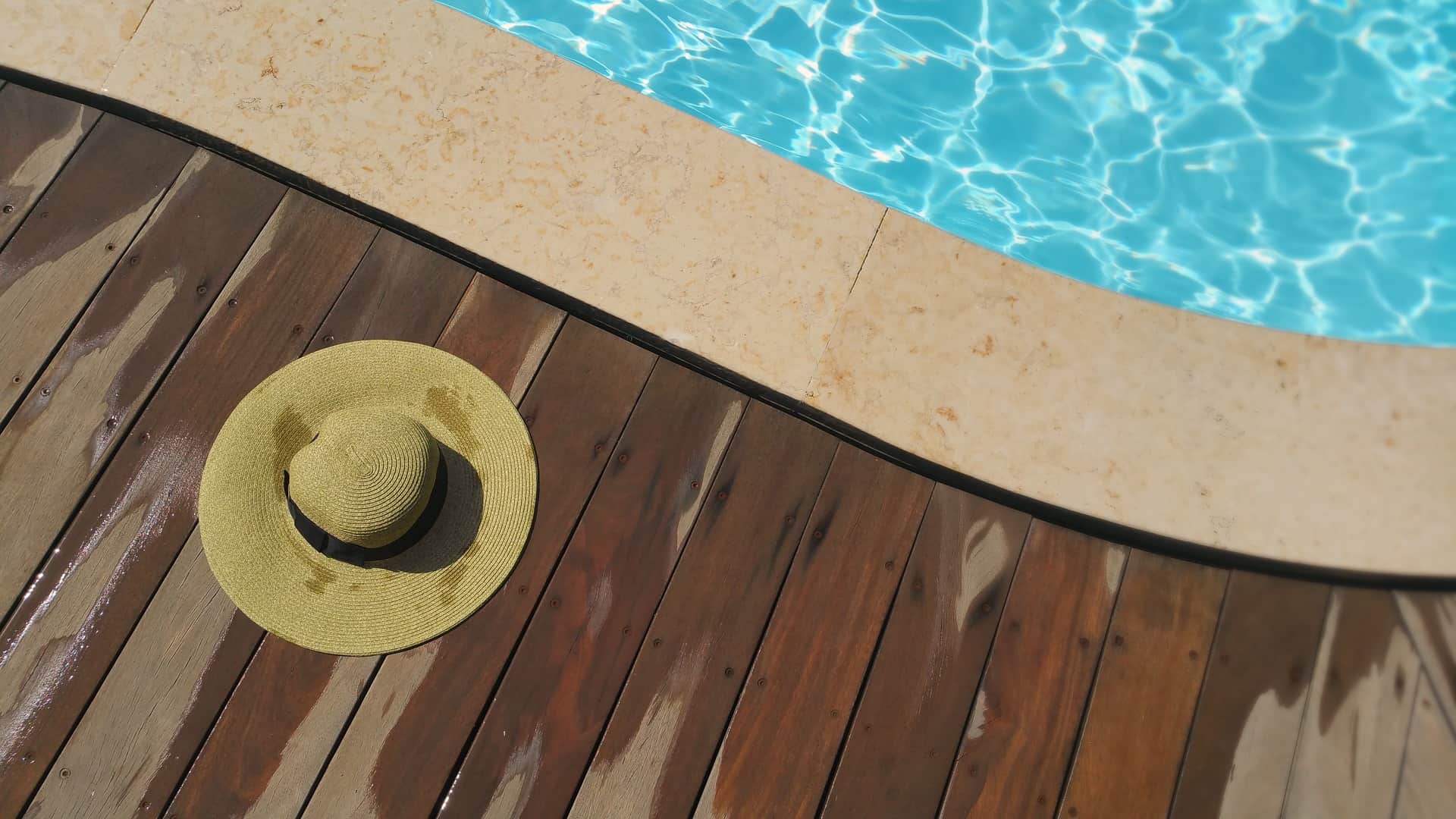

Pools are great places for family fun, but they can be hazardous if you aren't careful. You know those signs that say "no running by the pool?" They're up there for a reason! If you or someone you love slips and falls by the poolside, here's what you need to know.
Most people will tell you that the side of a pool is going to be slippery, but what does that really mean?
Let's hop into the science for a moment. "Slipperiness" is the result of a low coefficient of friction (CoF). This is the scientific term for how easily two surfaces move when in contact. A number of factors can affect CoF, including the type of surface (concrete, tile, etc.), sealants and finishes, and the age of the surface (as materials wear down through exposure to weather and use). The property owner can take steps to improve the CoF, but these require maintenance and may not always be up to date.
A surface with a low coefficient of friction gets even more slippery when wet, so the water that splashes out of the pool can overcome even the best safety measures. About 155,000 people suffer some kind of slip and fall at a pool each year. Injuries that result from these accidents can range from cuts and scrapes to broken bones to traumatic brain injury, if the person strikes their head off a concrete deck or diving board, for instance.
It is possible for damages in a slip and fall to be quite high. The court can take into account both known past costs and all reasonable expected future ones. In the case of a woman who slipped at the pool of a Carnival cruise ship, total damages came to $2.9 million dollars.
If you slip and fall at the pool, what are your options under the law? The answer comes down to three things:
Legally, the owner of the pool has a "duty of care" to anyone using their property. This means they must take all reasonable steps to make sure the area is safe, the equipment is maintained, and everything is properly marked and supervised. If the owner doesn't meet these responsibilities, it can easily lead to injuries.
However, the exact cause of the accident must be taken into account. The owner can try to prove that the victim was behaving recklessly or ignoring posted warnings. If the victim slipped on wet concrete because the owner hadn't installed mats or the right finish, however, the owner can be found liable.
Finally, the extent of the accident damages will be a deciding factor in whether a case is worth pursuing. The victim must be able to show that they suffered some measurable damages. This will often take the form of medical bills, lost wages, and some amount of pain and suffering.
A personal injury case is a complicated matter. If you are injured in a poolside accident, you deserve to have your case heard. You deserve representation that can get you the compensation you are owed. Dugan & Associates have years of personal injury experience and are ready to work for you. Contact us for a consultation.
"*" indicates required fields